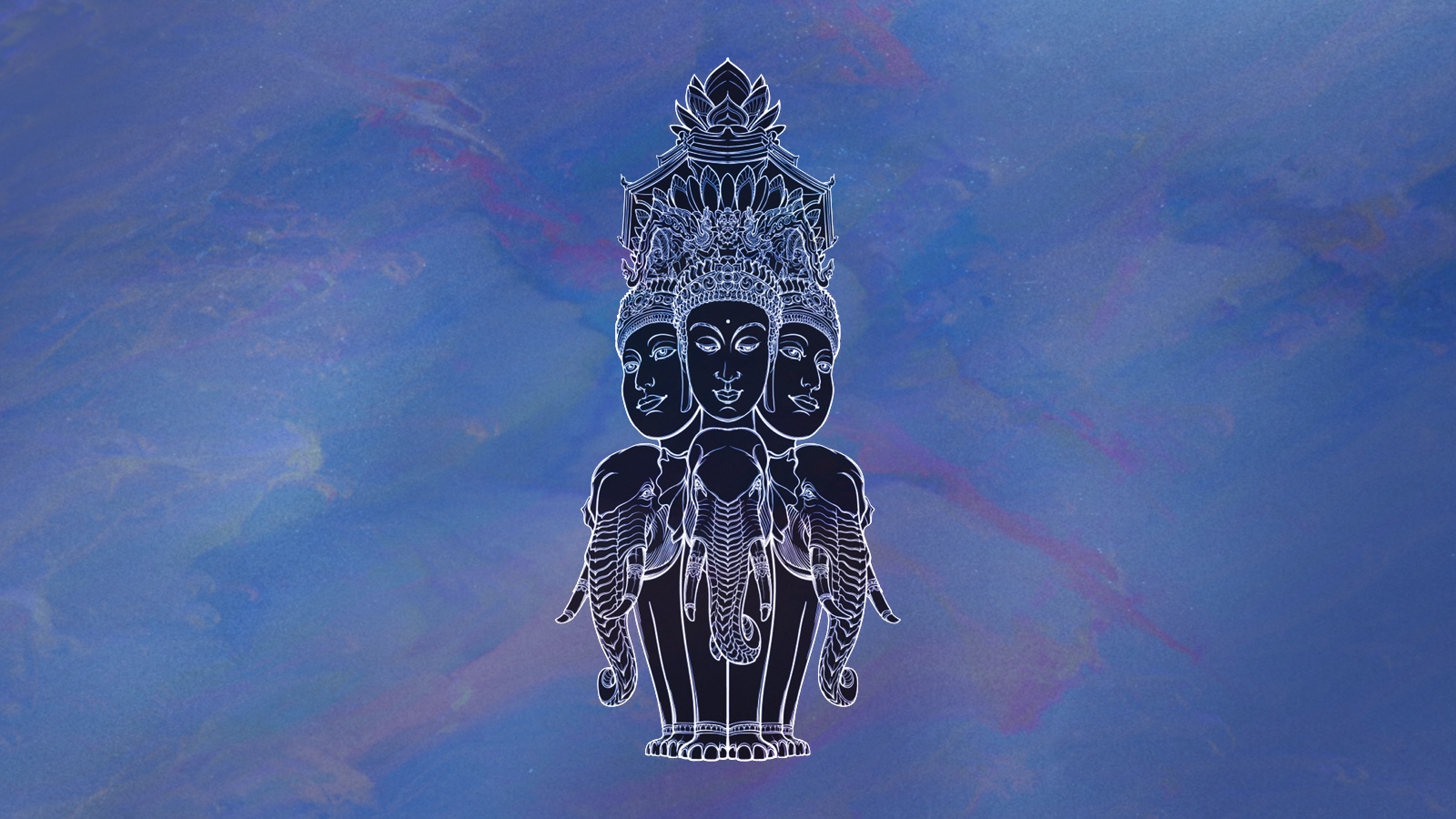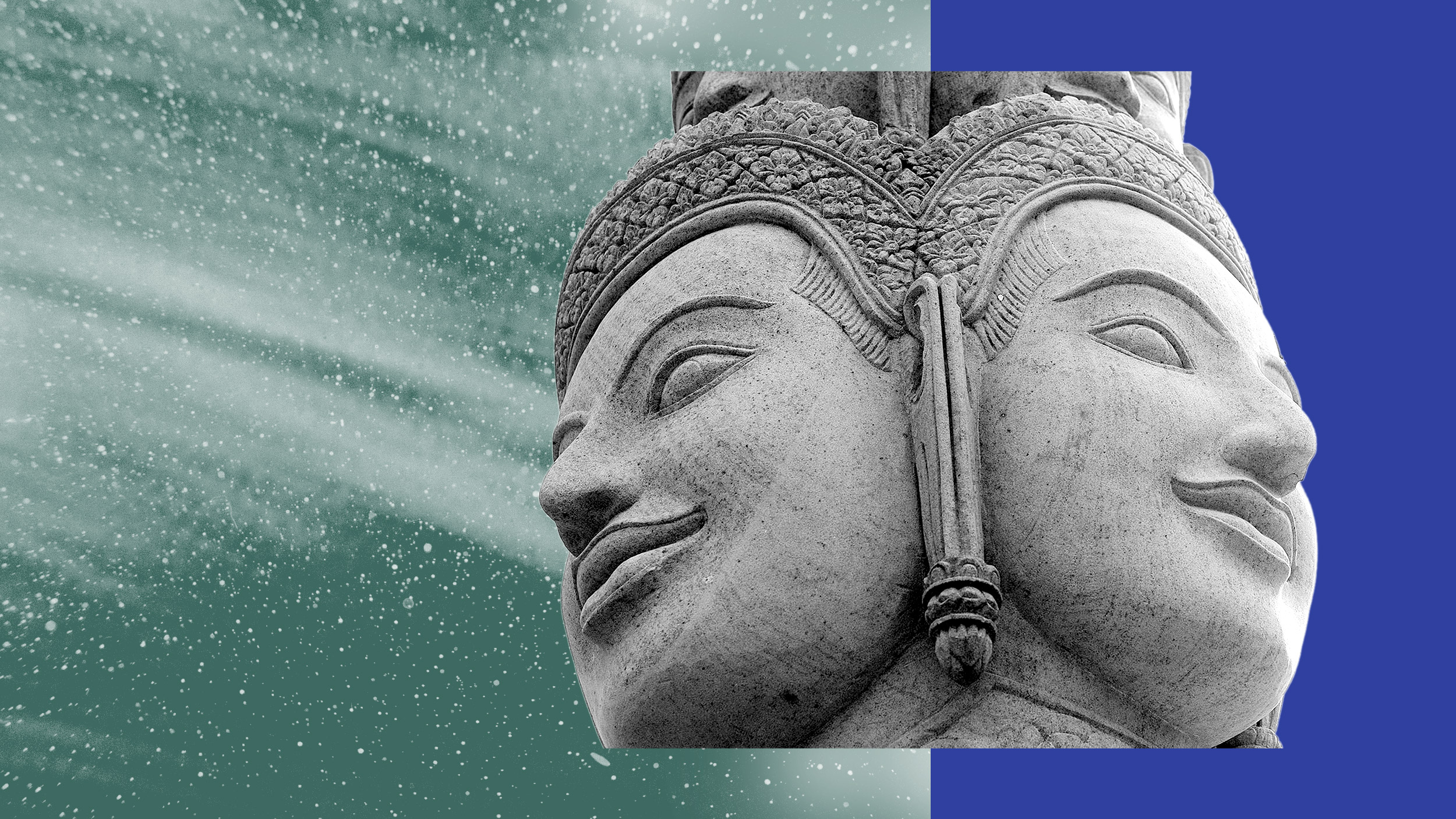What if you could rewire your brain to conquer suffering? Buddhism says you can

Credit: mech / Adobe Stock
- Buddhism provides a blueprint to understand and overcome existential suffering.
- Acknowledgment of human suffering is the first step towards freedom from pain.
- The Eightfold Path offers a guide for developing compassion and finding happiness.
The World Health Organization reports that the number of people suffering mental health conditions is increasing worldwide. Buddhism acknowledges that suffering is an inevitable part of the human condition. But what if you could rewire your brain to conquer suffering? According to Buddhism, you can.
Buddhism is a religion and philosophical system that originated in ancient India in the 5th century BCE. It is based on the teachings of Siddhartha Gautama, also known as Buddha. It is estimated that about 500 million people follow Buddhism today.
According to the Buddha, desire and ignorance lie at the root of suffering. These both lead to craving and attachment to things that are impermanent, and this attachment causes us to suffer when we experience loss or change, because we hold onto a false belief that these things will bring us lasting happiness. Buddhism teaches that mental suffering can be overcome through the development of understanding and the cultivation of certain mental states and practices.

The Four Noble Truths provide a framework for understanding suffering and how to overcome it. The first noble truth is that suffering exists. The second noble truth is that suffering is caused by craving and attachment. The third noble truth is that suffering can be ended. And the fourth noble truth is the Eightfold Path, which is a set of principles and practices to follow to bring an end to suffering.
The first noble truth is that suffering (dukkha) is inevitable. Just as identifying a problem is the first step towards its solution, the Buddha taught that the first step in overcoming suffering is acknowledging that suffering exists. When someone denies that suffering exists, they are delusional. When a person is not able to accept the reality of their situation, they do not find a way to alleviate their suffering. This can lead to a cycle of continued suffering.
The second noble truth seeks to identify the cause of suffering (samudaya), which is craving and attachment. Suffering arises from our attachment to things that are impermanent. The path to enlightenment involves understanding and accepting this impermanence. Desires and cravings for pleasure, material goods, and immortality are longings that can never truly be satisfied, so desiring them can only bring suffering.
Our denial of suffering, our desire for things to be permanent, and our resistance to change stems from a need for a sense of predictability and control. Consistency and control can bring comfort, which is why people tend to deny the reality of impermanence.
The third noble truth in Buddhism is the understanding that it is indeed possible to end the cycle of suffering (nirodha), and to attain a state of inner peace and freedom. This is also known as “Nirvana” or “Enlightenment,” which can be achieved either in this life on earth, or in the spiritual life.
A person who has gone through a difficult period in their life can find a way to understand and overcome their suffering through acknowledgment, and by using meditation and other spiritual practices such as mindfulness (one of the key practices in Buddhism, which involves paying attention to the present moment) to let go of attachments and move on.
The fourth noble truth is the Eightfold Path (magga) or “the Middle Way.” It is the set of principles and practices that charts the method for attaining enlightenment and ending suffering. It is a set of guidelines for ethical and mental development, consisting of Right Understanding, Right Intention, Right Speech, Right Action, Right Livelihood, Right Effort, Right Mindfulness, and Right Concentration. These practices are meant to help us develop wisdom, compassion, and ethical conduct.

Right understanding, also known as “Right View,” is the first step of the Eightfold Path. It refers to a deep understanding of the Four Noble Truths, which requires us to understand that suffering exists and acknowledge the factors that cause it, then begin to take steps to alleviate suffering by following the Eightfold Path.
Right intention, also known as “Right Thought,” helps to guide us towards ethical and moral behavior. Wholesome or virtuous intentions are characterized by renunciation of greed, detachment from worldly desires, avoidance of causing harm (to oneself or others), and the promotion of well-being, happiness, compassion and kindness towards all beings. Right intention is closely related to the concept of Karma, which refers to the accumulation of good or bad actions a person takes in their lifetime. Good actions such as being truthful, generous, kind and righteous bring about happiness in the long run.
Right speech is the commitment to speaking in a way that is truthful, kind, and beneficial. This entails refraining from lying, harmful speech that is cruel, abusive or divisive, refraining from gossip, and refraining from frivolous “filler” speech.
Right speech helps us to develop the ability to communicate effectively and kindly, and to express ourselves in a way that is honest and beneficial to others. It also helps to cultivate mindfulness and self-awareness, as it gets us into the habit of thinking before we speak.
The fourth step of the Eightfold Path in Buddhism is right action, also known as “Right Conduct.” It refers to ethical and moral behavior, which includes refraining from harming others, stealing, or exploiting others.
Right livelihood is the commitment to earning a living in a way that promotes ethical and moral economics. This means refraining from engaging in harmful or destructive industries, and avoiding occupations that involve exploitation or environmental damage. Right livelihood means engaging in work that supports the well-being of oneself and others.
The sixth step of the Eightfold path is right effort, also known as “Right Diligence.” This refers to the commitment to making a consistent and sustained effort to improve one’s ethical and mental development. This means actively shedding negative thought patterns. Mindfulness and self-awareness are at the heart of right effort. Comparable to the rewiring practices of Cognitive Behavioral Therapy (CBT), it requires consistent mental discipline to forge new mental pathways.
Right mindfulness, also known as “Right Attention,” refers to the commitment to being aware of one’s thoughts, emotions, and actions in the present moment. This mindfulness is all-encompassing, including the body’s physical sensations and movements, and helps to cultivate self-awareness and a grounding in reality. It requires paying attention to the present moment rather than dwelling on the past or worrying about the future.
Right concentration, also known as “Right Meditation,” is the eighth and final step of the Eightfold Path in Buddhism. It refers to the commitment to developing deep levels of concentration and mental focus through meditation. Right concentration includes developing the ability to focus on one single thing, leading to deeper levels of concentration (and ideally insight into the nature of reality), and requires consistent and sustained effort. Related to right mindfulness, right effort and right understanding, it helps to cultivate the mental discipline and focus necessary for the attainment of inner peace and enlightenment.
According to Buddhism, the path to liberation from suffering and the attainment of lasting happiness lies within the realm of the mind. Through the cultivation of wisdom, ethics, and mental discipline, we can achieve this. By following the Eightfold Path, developing mindfulness and compassion, and accepting impermanence, we can think our way to freedom from existential pain.





